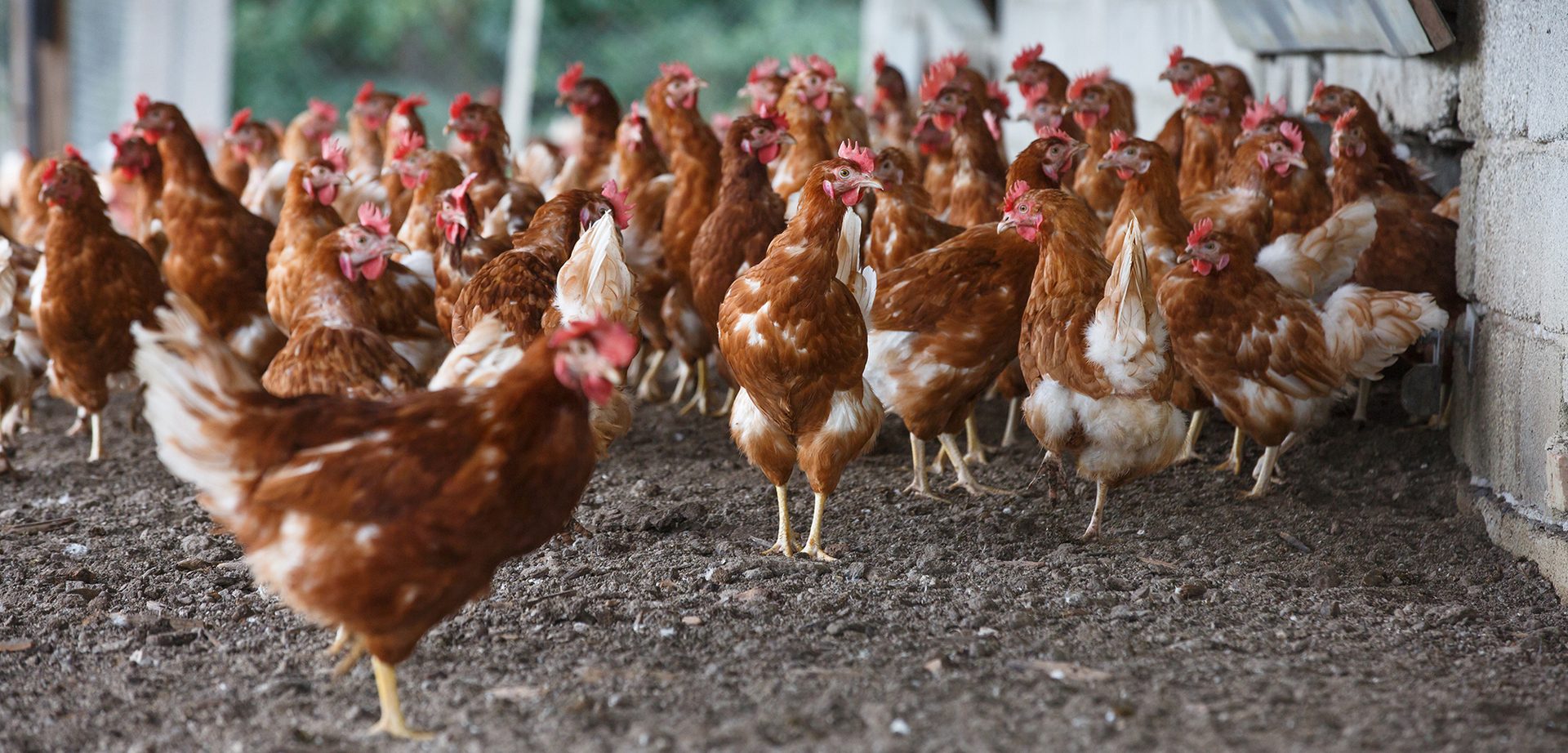march 2023

Alternative Protein
TRENDS IN
5
Alternative Protein
From industry financials to the question of whether or not cell-cultured meat is really meat, these are the five subjects we see the most.
Photo courtesy of Redefine Meat
Last November, the U.S. FDA announced that it had completed an evaluation of UPSIDE Foods’ cultured animal cell foods and had “no further questions at this time about the firm’s safety conclusion.” While the FDA pointed out that there were still other regulatory hurdles to overcome before cell-cultured foods could be brought to market, namely from the USDA and FSIS, the announcement was seen by many as an important step in adding another option to the alternative protein space—one of a number of trends involving alternative protein in the past year.
What to Make of the Financials
Anecdotally, it would seem that alternative protein products, particularly plant-based, aren’t having much success. Reported financial earnings of Beyond Meat showed a higher-than-expected loss due to a drop in demand. That led to some pundits claiming that plant-based products were a fad that would pass—and the reputation of plant-based was further eroded by an incident involving the COO of Beyond Meat, his teeth and another man’s nose. Companies like Impossible Foods, however, took exception to reports that plant-based alternative proteins were simply a fad by pointing out its own earnings.
As a whole, numerous outlets are predicting that the alternative protein market is going to experience growth. For example, Vantage Market Research says that the market for alternative protein will exceed $126.84 million by 2028, and Fact.MR says the meat substitute market will be worth $235 billion by 2032.
by DERRICK Teal, Editor-in-Chief

A partnership between CoreFX Ingredients and Natures Crops will make use of the regenerative Ahiflower crop. Image courtesy of Natures Crops
Both of the aforementioned studies say that plant-based products are the leaders in terms of market share for alternative protein. It’s possible that the lack of demand for Beyond Meat products can be attributed to a surge in demand because of its “newness.” We’ve seen this before with a new restaurant or video game system where there’s a large rush for a brand new product that makes splash, but demand drops when once the curiosity wears off and only those who make up the core consumer remain. But, as a whole, new products continue to emerge in the alternative protein space, indicating that Vantage Market Research and Fact.MR are likely right about the market’s worth.
Plant-Based Protein Powders and Bars
The number of plant-based protein products hitting retailers seems to grow by the minute. Protein powders and bars are a popular trend in part because of America’s newfound focus on healthier lifestyles. In October, CoreFX Ingredients and Natures Crops announced a partnership to launch a new plant-based omega powder, 70GA Dry Ahiflower Oil. The product is a propriety seed oil of Natures Crops that the company says contains more biologically advanced omegas than any other natural plant source. The Ahiflower crop is regeneratively grown by independently qualified farmers. The company states that this is to ensure purity and traceability. The oil is rich in omega-3 stearidonic acid (SDA) and omega-6 gamma linolenic acid (GLA), which supports the heart, brain, skin and immune health. CoreFX and Natures Crops states the product delivers similar health advantages of fish oil, evening primrose oil, olive oil and flax seed oil.
Protein powders and bars are a popular trend in part because of America’s newfound focus on healthier lifestyles.
In January, Osage Food Products announced the launch of SolvPro Vegan Plant Protein Blends, a new line of optimized plant protein blends that combine different plant proteins and deliver targeted nutritional and functional properties for a wide range of end-use applications. A number of SolvPro products make use of brewers’ spent grains retrieved from the brewing of beer and upcycled by EverGrain, which was created by Anheuser-Busch.
Bobo’s launched a new line of protein bars, also in January, that contain 15 g of protein from peanuts or almonds, pea protein and other ingredients that deliver protein. The new protein bars are also verified non-gmo, certified gluten free and kosher, and are now available nationwide. “We all know that protein bars aren’t very tasty and are packed with sugar alcohols, artificial flavors and inflammatory oils.” says TJ McIntyre, CEO at Bobo’s. “By following Bobo’s ‘real-food’ philosophy, we knew we could create a nutritious, better-tasting protein bar simply by sticking to clean ingredients and avoiding over-engineered additives. We’re thrilled with how they turned out.”
BrainMD, a science-based nutraceutical company founded by Daniel G. Amen M.D., launched a plant-based protein bar called Brain Boost Plant-Powered Protein Bar in October of last year. The product was the first of its kind for the company as a ready-to-eat health and wellness snack. Each bar contains 12 g of plant protein, 11 g of prebiotic fiber, almond butter and dark chocolate chunks. Among the product’s main ingredients, it also contains MCT oil powder and no added sugar, artificial sweeteners or colors, fractionated oils or trans fats.
Mars also got in on the act in December, launching SNICKERS Hi Protein bars, a brand-new performance nutrition bar. The company says that SNICKERS Hi Protein bars feature the same chocolate, caramel and peanut ingredients of SNICKERS but now with 20 g of protein. "With the demand for delicious tasting protein bars increasing, SNICKERS Hi Protein bars are guaranteed to be a hit whether you work out avidly, casually or are looking for a delicious snack with more protein," says Michelle Deignan, senior brand director of Mars Wrigley.

The company says that SNICKERS Hi Protein bars feature the same chocolate, caramel and peanut ingredients of SNICKERS but now with 20 g of protein. Image courtesy of Mars
Plant-Based Eggs
As the effects of largest global bird flu outbreak continue, the launch of a bevvy of plant-based eggs and products containing plant-based eggs couldn’t have been timelier. October through December of 2022 alone saw the launch of MingsBings, a “modern Asian street food” from Chef Ming Tsai and JUST Egg; AcreMade’s egg substitute called Plant-Based Egg Substitute—a shelf-stable powder designed for scrambling or baking—made from PURIS' ingredient, yellow field peas; and OGGS Egg Alternative said that its plant-based liquid egg substitute—made with aqufaba, a liquid produced from chickpeas—was selected for trials with two of the UK’s largest British bakery manufacturers in an attempt to both deal with the egg shortage and combat the rising prices of eggs.
Fact.MR expects egg substitutes will continue to gain traction, not just because of the egg shortage. In its report “Vegan Egg Market,” the research company did cite avian flu as a reason for the upswing in egg substitutes, but it also named salmonella as a primary factor. Additionally, it said that the general inconsistency of the egg market even prior to the shortage was a factor. Coupling the market volatility with the current shortage has led to greater focus on egg alternatives, especially at scale.
“Manufacturers are working on continuous innovations to improve the quality of food items. They are adapting numerous technologies, including biotechnology and nanotechnology, to make the process of producing vegan eggs even easier,” says a lead analyst at Fact.MR.

Egg alternatives are gaining traction due to an outbreak of avian flu that has caused a shortage of eggs and driven up prices. Image courtesy of Getty Images Zlikovec
Whole Cut “Meat”
A survey entitled “Consumer Acceptance of Plant-Based Meat Substitutes: A Narrative Review” found that 53% of U.S. respondents liked the taste of plant-based alternatives compared to animal-based meats, but the criticism of plant-based alternatives were mostly about texture. It’s difficult for plant-based products to mimic animal products because they’re fundamentally different at the molecular level. Animal proteins are comprised of long protein chains of myosin and actin, while plant-based proteins are globular. This is the reason why plant-based alternatives to something like ground beef, where those long chains of animal-based proteins are broken up, are texturally more acceptable to consumers than say a steak where those long chains would remain intact. But the industry is finding ways to make whole cut meat alternatives possible.
According to a white paper by Innophos’ Karen Winkowski, PhD, Songwei Wu and Amr Shaheed entitled, “Solutions for Plant-Based Meat Substitutes,” one way manufacturers are able to better able to make plant-based whole-cut meats is through phosphates.
“Phosphates are key ingredients in developing appealing meat substitutes because they impact protein functionality (for example: ability to form gels, hold water, absorb fat, emulsify),” say the authors. “These functionalities impart sensory characteristics to the food products such as flavor, texture and taste which ultimately determines consumer acceptability of new products.”
Plant-based products that are making inroads to whole cuts come in a wide variety of formats. Sweet Earth Foods’ new frozen entrée bowls contain chunks of plant-based “chik’n,” UNLIMEAT announced that its offerings now include deli slices to complement its plant-based pepperoni and mortadella, an Italian sausage. Redefine Meat’s new products include tenderloin and striploin cuts, as well as “pulled” beef, lamb and pork for the food service segment in the UK, Germany, Netherlands, Austria and Israel.
Aqua Cultured Foods makes whole-cut mushroom-based seafood, like sea bass fillets, and announced the start of a buildout of a new facility in Chicago as it continues to develop calamari, shrimp, scallops, and filets of tuna and whitefish products. The company expects to introduce its meat analogs later this year.

Aqua Cultured Foods has begun buildout of a new facility that will enable it to begin scaling its whole-cut mushroom-based seafood like its sliced sea bass filets. Image courtesy of Aqua Cultured Foods
Cell-Cultured Meats
This article started with news about the FDA’s “approval” of cultivated meat products. It’s an industry that was already making prominent strides, and that progress might speed up even more since November. But it’s likely to be done in a way that still takes health and safety as the highest priority.
When asked if cultured meat product developers and manufacturers would be allowed the same lack of oversight given to other industries, like the auto industry’s pursuit of autonomous vehicles and NHTSA, CRB’s Project Manager at Alternative Proteins Sebastian Bohn says it’s unlikely. He says that manufacturers would prefer to have more FDA engagement so that they’re able to take proper steps along the way to ensure that the product that makes it to the consumer gets it right the first time. “Everybody still wants to be first,” says Bohn, “but everybody wants to make sure that whoever is first, the consumers trying the product actually think it’s a hit.”
Though UPSIDE Foods was essentially “first,” others are entering the regulatory approval process as well. For example, Bluu Seafood presented what the company says are the first market-ready products made from cultivated fish cells, and it expects a market launch in Singapore by the end of this year. The company’s also applying for approval in the U.S., UK and EU.
Another cultivated seafood developer, Avant, announced in July a $10.8 million round in funding, led by S2G Ventures, that’s supporting the construction of a pilot plant also in Singapore and the marketing of its products globally. The company goes on to state that its processes are aimed at cost reduction and scale-up.
Other companies have also announced plans to scale-up their processes. Mosa Meat announced in October 2022 a new industrial production development center being developed close to Mosa Meat’s existing pilot facility in Maastricht, the Netherlands. The company says that the next phase of expansion will be to house industrial-size production lines and enabling larger production quantities of beef. “We’ve expanded our space by 30,000 sq. ft. in our next phase, which brings Mosa Meat’s total footprint to over 77,000 sq. ft.,” says Maarten Bosch, Mosa Meat’s CEO.
BELIEVER Meats in December 2022 broke ground on its first U.S. commercial facility in Wilson, N.C. Once operational, the 200,000-sq.-ft. facility will reportedly have the capacity to produce at least 10,000 metric tons of cultivated meat.

BELIEVER Meats’ new facility will utilize proprietary, custom-made bioreactors that can achieve high cell densities and yield based on patented processes. Image courtesy of BELIEVER Meats
As more and more companies come into the fold and look to gain market share, that one aspect they all need to keep an eye on is quality.
“If the first to the market doesn't get what I'd call the 'electric properties' right—the texture, the taste, the smell—the product will be at a detriment,” says Tony Moses, director of product innovation at CRB. “And I think that can ruin your brand.”
That leaves companies with a drive to be first to market with a delicate balance to maintain. And being first to scale isn’t necessarily all it’s cracked up to be.
“What I always worry about on the facility and capital side is it takes equipment to get it to that state,” says Moses. “If you have to write that off or modify that, then you're overhead goes up and now your cost of goods sold has this extra fat, this extra overhead, and now you’re sitting on it. That puts you at a competitive disadvantage: You've shown your competitors what isn’t working in the marketplace, so they can have a different launch strategy and a little bit smarter capital deployment.
“I think it can be risky to be first to market, to spend all that cash, to show your competitors what not to do,” he says.
When talking about cell-cultured products, though, there’s still so much that’s left to be explored, including if cultured meats are processed using traditional meat processing equipment—if that’s even possible. Bohn says that while a cell culture operation might work in a lab or on a small scale, formulations may have to change to go to full commercial scale to ensure repeatability.
“I think the general thought—and hope in some of these cases—is it doesn't have much of an impact,” he says. “But the fact is, we don't have a full commercial facility yet. So I think that's yet to be seen.”
Other questions around cell-cultured meats and their alternative protein brethren are starting to crop up, too. While at least one religious leader has declared cultivated meats to be parve, which means it’s neither meat nor dairy, other religious leaders are still considering the question—the answer of which would have large implications for the industry. We’ll wait and see what the response is as we continue to keep an eye on the future of alternative protein. FE
MARCH 2023

